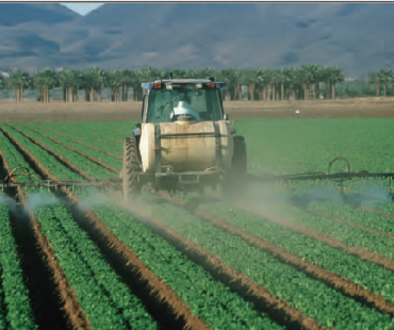Republican Congressman Joins Growing Bipartisan Effort to Fund USDA Organic Agriculture

Many have no idea that only 1% of our farmland in the U.S. is organic. Given that over 80% of households now purchase organic, that number is shockingly low. Companies like Kashi have established a third party certification program to help farmers convert conventional land to organic land. It’s a brilliant idea. More are needed. The funding for organic farms hasn’t been there, because the Farm Bill, the piece of legislation that determines financial support for U.S. farmers, heavily favors commodities—corn and soy, the foundation of our junk food system.
 It’s been fascinating to watch this play out over the last several years. As Big Food increasingly buys into the organic food movement, the supply chain has barely budged. This is not sustainable. We are importing organic ingredients, rather than building out our supply chain here. Stuck at 1%, sectors in the organic industry are now suggesting that hydroponic “farms” by labeled “organic.” These “farms” are plastic containers and towers that don’t rely on inputs like sunshine and soil, but rather are regulated by technology, water systems and require nutrient inputs to account for their soilless nature. It’s not a bad idea, as it also requires far less water. But is it organic? That’s the question that is up for debate. And it’s a big one.
It’s been fascinating to watch this play out over the last several years. As Big Food increasingly buys into the organic food movement, the supply chain has barely budged. This is not sustainable. We are importing organic ingredients, rather than building out our supply chain here. Stuck at 1%, sectors in the organic industry are now suggesting that hydroponic “farms” by labeled “organic.” These “farms” are plastic containers and towers that don’t rely on inputs like sunshine and soil, but rather are regulated by technology, water systems and require nutrient inputs to account for their soilless nature. It’s not a bad idea, as it also requires far less water. But is it organic? That’s the question that is up for debate. And it’s a big one.
Thankfully, this isn’t just a conversation between lobbyists in DC, the dairy industry or parents around kitchen tables.
Congressman Doug LaMalfa (R-CA) has joined the growing bipartisan effort to increase funding for the USDA Organic Agriculture Research and Extension Initiative (OREI). As a co-sponsor of the Organic Agriculture Research Act (HR 2436) Rep. LaMalfa joins fellow Agriculture Committee member, Congressman John Faso (R-NY), California Congressman David Valadao (R-CA), and 50 other Members of Congress who have signed on to support the bill.
HR2436 was sponsored originally by Reps. Chellie Pingree (D-ME), Dan Newhouse (R-WA), and Jimmy Panetta (D-CA). The bill seeks to renew the OREI program and increase its funding to $50 million per year.
“California agriculture adds more than $47 billion a year to our state’s economy, responsible for over half of all the fruits, nuts, and vegetables grown in the country,” said LaMalfa. “As markets and consumer demands change, it’s important we provide our farmers and ranchers with the tools they need to keep up and remain competitive. The OREI program does just that, and I’m proud to support this legislation.”
Sales of organic products continue to grow by double digits (23% growth in 2016, USDA Organic Production Survey). Yet, U.S. organic production is growing at a relatively slower pace. American farms are not keeping up with consumer demand, and we are increasingly turning to imported organic products. This is a lost opportunity for our farmers, our communities, and our country. Federal investment in organic research has been stagnant for nearly a decade. Congressman LaMalfa and the bill’s other co-sponsors are leading Congress to help American farmers meet the challenges of organic farming systems and highly competitive global markets.
Organic farms and businesses have proven to be a strong engine of jobs and economic health throughout the U.S. and California’s 1st District is no exception. Congressman LaMalfa has 234 certified organic operations in his district according to the Organic Trade Association.
“We are grateful to Congressman LaMalfa for taking the time to hear directly from farmers about the importance of increased investment in organic research,” said Brise Tencer, Executive Director at OFRF. “It is encouraging to see this level of bipartisan support for a bill that will help America’s organic farmers succeed.”
The Organic Agriculture Research Act is endorsed by the Organic Farming Research Foundation, the California Farm Bureau Federation, California Certified Organic Farmers, and the Organic Trade Association.
Organic Farming Research Foundation (OFRF) is a non-profit foundation that works to foster the improvement and widespread adoption of organic farming systems. OFRF cultivates organic research, education, and federal policies that bring more farmers and acreage into organic production. Please visit their site to learn more.





